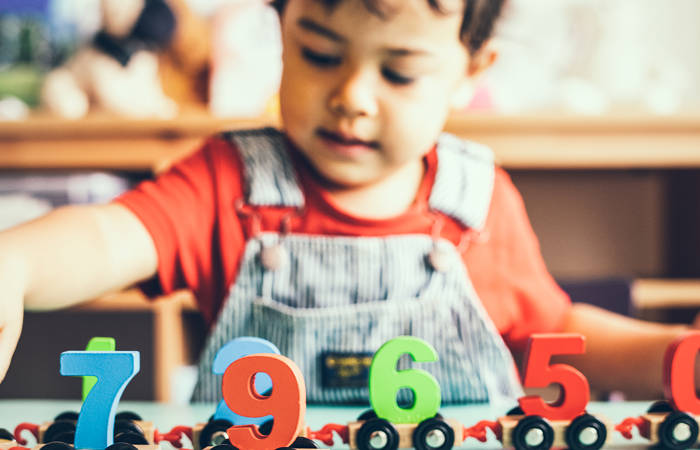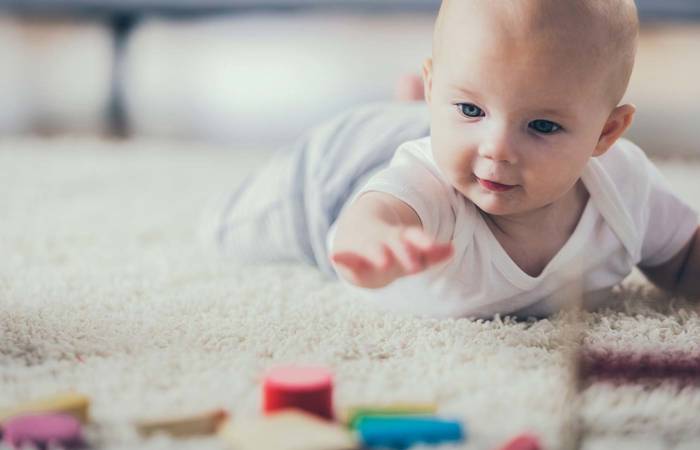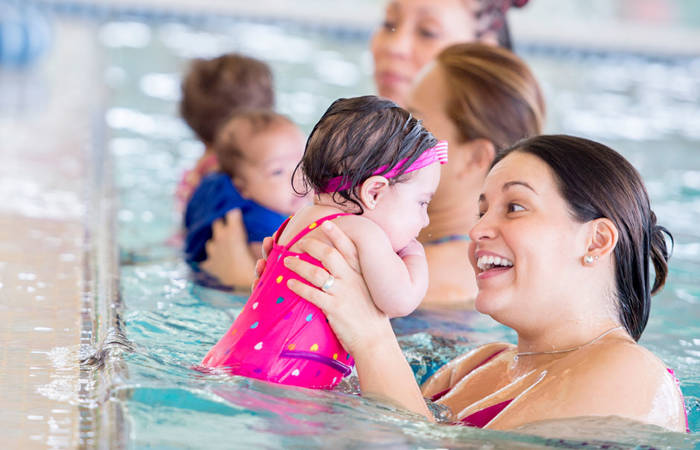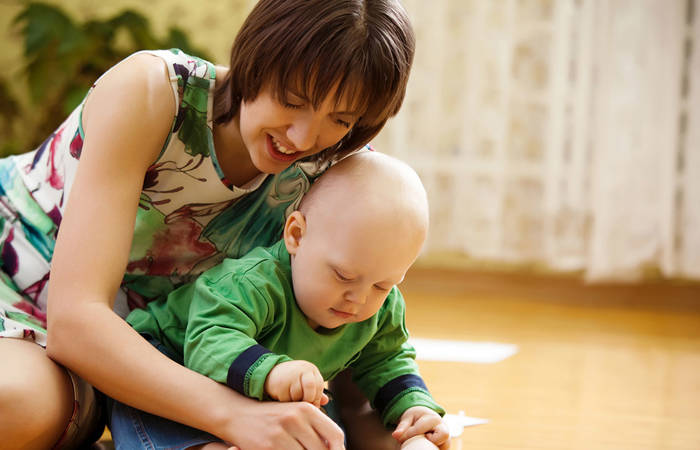Like what you see?
Sign up to receive more free parenting advice.
Thank you for subscribing to our newsletter!
Early Learning
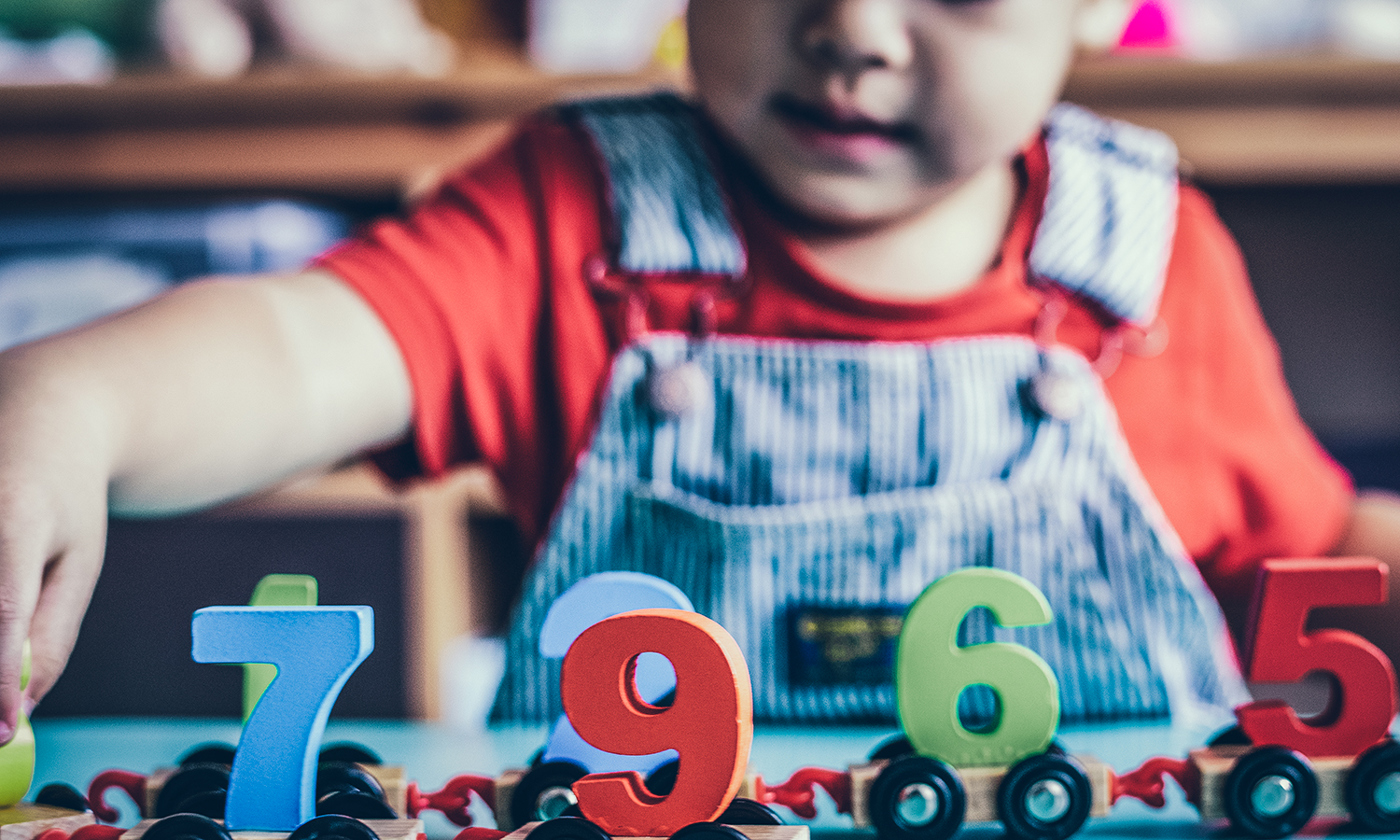
Credit: iStock.com/Rawpixel
“I’m terrible at maths!” people often bemoan. Perhaps you say it yourself.
It’s a shame, however, if you’ve managed to convince yourself you can’t help your child to learn the basics. Fortunately, it is also untrue.
According to Ann Gervasoni, Associate Professor at Monash University’s Faculty of Education, “you’re actually very good at everyday maths”.
And that’s precisely the kind of maths your pre-school aged child thrives on.
“Something happens at high school that leaves many people feeling they're not good at maths,” says Professor Gervasoni.
“Maybe they didn’t thrive at school maths for a time but that may be more about the teaching.”
So set aside any memories of flunking exams and consider, instead, how you plan and prepare family meals.
“No-one goes without and that's all about quantities and recipes,” says Professor Gervasoni.
Consider how you walk to the shops or detour on your weekend drive to the grandparents’ house if you predict bad traffic. That's using skills of probability, geometry and location.
Getting your children to school? A great example of how to effectively measure and use time.
“Mathematics is part of what we all do naturally as human beings,” says Gervasoni.
“Parents, grandparents, aunties and uncles have been the first mathematics educators of children since the beginning of time.
“We've always needed to measure and design things with shapes, use patterns for weaving and determine if we have enough of a resource.”
Something happens at high school that leaves many people feeling they're not good at maths. Maybe they didn’t thrive at school maths for a time but that may be more about the teaching.Associate Professor Ann Gervasoni
Stay up to date with the latest news and articles from First Five Years
Thank you for subscribing to our newsletter!
Follow the leader
Even without prompting, young children constantly notice and use mathematical ideas.
“Stop, watch and listen to your child when they play,” says Professor Gervasoni.
It might be when they compare and measure shapes as they try to find a small toy beneath a pile of bigger toys.
Or when they pour a big vessel of water into a smaller one in the bath and it overflows.
Or when they talk about if the family dog will bark at the postman, or if the heavy rain might make puddles in the park (That’s probability.)
So given both parent and child are constantly engaging in everyday maths, what’s left to do?
Your role as a parent, says Professor Gervasoni, is to build on these situations by noticing, exploring and talking. And as always: having fun.
Along with Professor Bob Perry from Charles Sturt University, Professor Gervasoni helped to set up a mathematics program for children aged three to five with The Smith Family called Let’s Count.
She recounts a story from a parent who participated in Let’s Count.
“One afternoon, Dad comes home and puts his thermometer on the bench. When his four-year-old daughter asked what it was, her mother realised this was a moment to explore.
“She said ‘it’s a thermometer, you use it to find out how hot and cold things are - let's put it in the fridge and see what happens’. After they discussed how the temperature changed, the child suggested they put it in the freezer!”
This story, says Professor Gervasoni, shows the depth of children’s curiosity and how they can learn maths in everyday situations.
Maths at home matters
The data is in. In a review of the Let’s Count program, Professors Gervasoni and Perry found that when parents routinely take these opportunities at home, their children learn more maths than children whose parents did not take part in Let’s Count.
“The stronger the partnership is with parents from birth, the better children are positioned to flourish when learning maths at school,” says Professor Gervasoni.
While some believe certain people are ‘born good’ at maths, “the reality is that we are all capable of learning it,” says Professor Gervasoni.
“What’s most important is how any child’s interest has been nurtured from an early age,” she says.
“When a child expresses curiosity about mathematical ideas, this is the time for parents to recognise and nurture this.”
Five tips to nurture maths
Older siblings may be able to help with these activities – or have some great ideas themselves.
Compare and measure - Find the tallest thing in your house, the lightest vegetable in the fridge and the glass in the cupboard that holds the most water. Speed it up by playing I Spy.
Learn shapes - When children notice something round (a ball) or something flat (a book), ask them to find other shapes too. Look for circles, triangles, squares, oblongs and cylinders and explain their properties - for example, a triangle has three straight edges.
Practise location words - Describe where things are such as inside, below, next to, behind, up, here, middle and opposite. Ask children to find an item ‘above my head’, ‘next to the fridge’, ‘behind the door’ or ‘opposite the plant’.
Find patterns - Talk about repeating patterns in songs, household objects or family routines. Look in the garden or in the closet to find patterns in nature or printed on clothes. Encourage your child to draw them, or to draw other patterns they know.
Telling time - Help children notice the duration of activities using hours, minutes and seconds. Ask you child to help you count how many seconds it takes to reach the corner, or to tell you the time on the car clock before and after you reach pre-school.
Building on numbers - Learning numbers names from 1 to 20 is a building block that prepares children to talk about quantities. Ask them to bring you three shoes or four books or to find numbers written on food items in the pantry.
Tips from: www.numeracyathome.com

